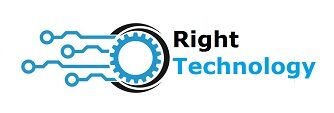Buying project management software: 5 mistakes to avoid
Today, more and more companies use software solutions on a daily basis. Collaborative platform, instant messaging, customer relationship management software (CRM), analytical tools, data management, project management software , etc., these various tools and applications have become essential to simplify and automate the tasks of employees as well only to make the company more efficient and competitive.
You have decided to acquire a project management solution for the multiple advantages it offers: monitoring the progress of your projects, task management, centralization and sharing of data, collaboration and facilitated exchanges between team members, etc.
To help you make the right choice, here are 5 mistakes you’re likely to make when acquiring project management software and the solutions to avoid them.
Not having a specific goal
Some companies opt for project management software because this type of tool is trending and a large number of companies are already using one. But is that a valid reason to invest money, time and resources in a tool you may not really need?
While it is obvious that project management software is useful and helps improve your productivity, the question to ask yourself is: why do you want to acquire a project management solution? ? What problem(s) will it help you solve?
Without a specific objective, you risk buying inappropriate project management software, which will not meet your needs and which will not bring you any added value in the long term.
The solution
The objective of this type of tool is to allow you to be more efficient and to eliminate blocking points within your organization. You must therefore identify these blocking points with the employees of the various departments of your company. This will allow you to define the essential characteristics and functionalities that your future tool must have.
Underestimating the time and cost of implementation
In addition to the purchase price which can be high, the acquisition and implementation of classic software, known as “on-premise” (“on site” in French) within all of the services of the business can take time. Indeed, the software must be installed on all the servers or computers of your company, which mobilizes your team of IT specialists full-time. Not to mention staff training on the new tool, data migration, testing, etc.
In addition, the cost of purchasing a software license for a large number of employees can represent a significant financial investment, which should not be overlooked.
The solution
To save time and spend less, you can opt for SaaS software (Software as a Service), in other words the software is outsourced to the cloud . All you have to do is subscribe to a monthly subscription with the publisher or the host to be able to use it from any device connected to the Internet.
Failing to consider the future needs of your organization
Today, you are looking for project management software to improve your productivity and performance, meet your current needs and obtain immediate results in order to continue the growth of your business.
However, your current needs can quickly change. If you do not anticipate these new needs, you risk being forced to acquire new software that corresponds to your new requirements or to subscribe to extensions, which can represent a higher cost than if you had anticipated it. when purchasing the software.
The solution
When purchasing your software, it is imperative to consider your short-term and long-term needs as much as possible. Admittedly, it can be difficult to predict the future of your business, but you can estimate the number of employees and customers you will have in the years to come based on the current success of your business. This allows you to think about the different features and options to include, and to ensure that you can always use the same software for several years.
Not taking advantage of the trial period
Today, the majority of publishers offer you to test their project management software for free for a period ranging from two weeks to a month (or even more). Besides finding the best tool for your business, this testing period is a way to get your employees used to using software to perform their daily tasks. If they are reluctant during the testing phase, they may also be reluctant during its implementation.
The solution
It is your employees who will decide whether the software perfectly meets their needs and requirements, hence the fact that they must test it.
Encourage your employees to use this new tool daily and to test all the features. Then, ask them to give you feedback on their experience, and rate the ease of use and handling, the different features, the assistance, etc. If you test several software, do not hesitate to make comparative tables which will help you to make your choice.
Moreover, by encouraging your employees to make the most of the trial period, they will be able to use the chosen software effectively from the start.
Choose software that doesn’t have a mobile app
Today, between mobile teams, geographically dispersed teams and hybrid teams , few employees work only from their desktop computer, within the premises of the company.
It then becomes essential to acquire tools that can be used from any device (computer, tablet, smartphone), regardless of where you are. Otherwise, it may hamper your team’s productivity and performance.
The solution
Opt for project management software that has its own mobile application so that your employees can work on their project, discuss with their colleagues or share a document at .


Leave a Reply
You must be logged in to post a comment.